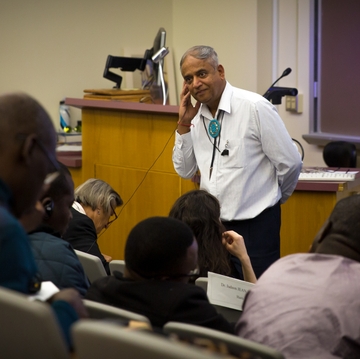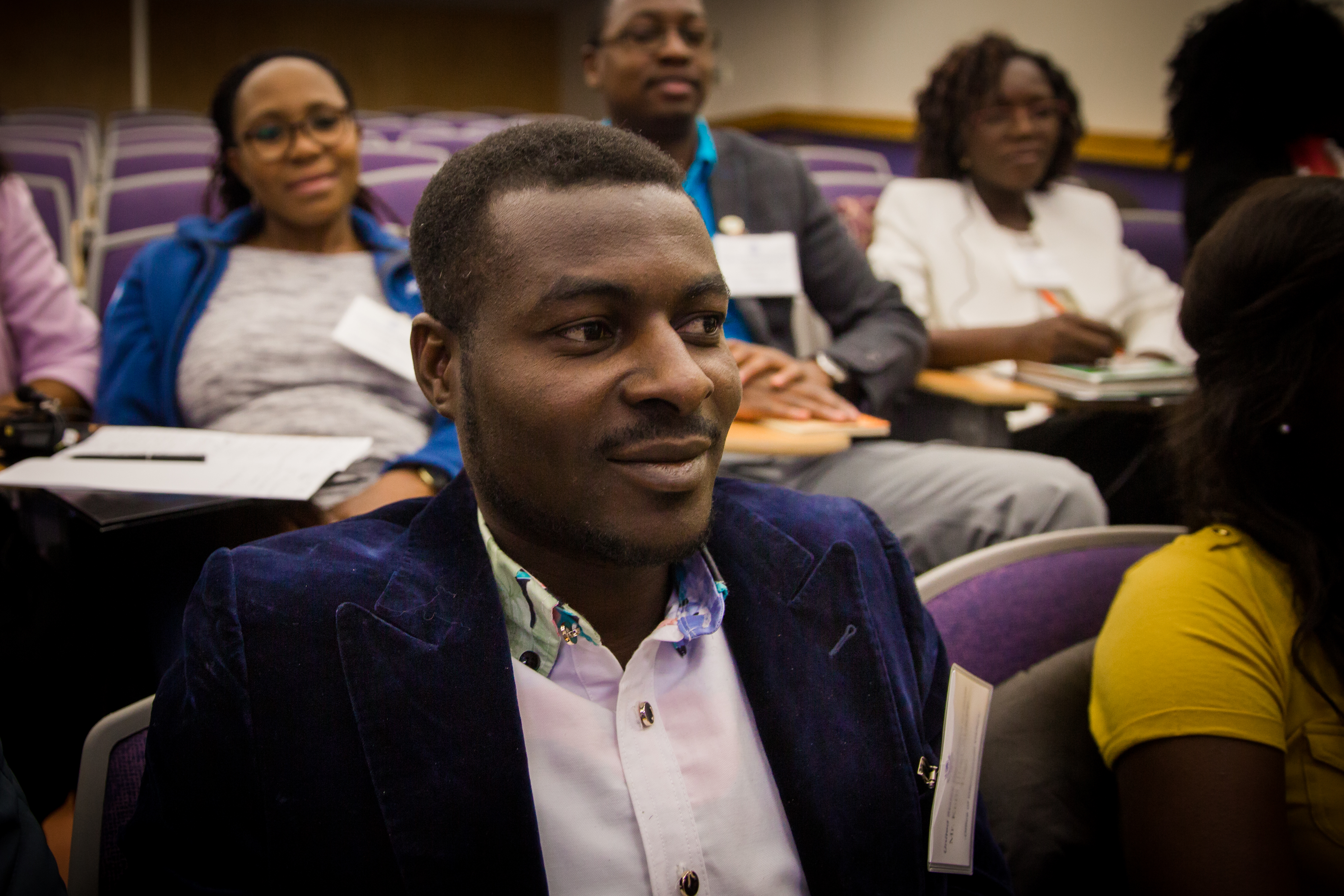Program Provides Research Opportunities for Undergraduate Students

Global Guidance
UNM, African Countries Share Public Health Strategies in Albuquerque
Health representatives from 12 African nations, along with Madagascar and Haiti, visited the University of New Mexico Health Sciences Center last month seeking proven strategies to strengthen community health programs in their countries. The contingent included leading epidemiologists, tuberculosis coordinators, HIV clinicians, medical investigators and biomedical researchers.
The group is exploring public health and infectious disease challenges and solutions as part of the U.S. State Department's International Visitor Leadership Program. They hope to better understand the roles played by U.S. government and non-governmental agencies in developing public health programs for both urban and rural populations.
Center stage during the UNM visit was the School of Medicine's Vallabh (Raj) Shah, PhD, who has been working with Zuni Pueblo for the last 20 years on the Zuni Kidney Project (ZKP) to reduce rates of diabetes and kidney disease in the community. Indigenous populations in many African countries struggle with similar health issues of tuberculosis, diabetes and infant mortality.
Shah, a regents professor in Department of Internal Medicine and Biochemistry & Molecular Biology, touched on several focal points in his work at the pueblo, including improving patient education, implementing home-health visitation programs, engaging in low-cost research that engages a community, UNM's Project ECHO model and more.
"The Zuni Kidney Project is a continually evolving program based on the needs and responsiveness of the community," Shah said. "The overall guiding principle of our work is delivering culturally appropriate, home-based health care and education. It also has taught us to target health priorities with limited resources. What we all shared was beneficial to our guests, but also to our ZKP program."
Dr. Nyonuku Akosua Baddoo agreed. "We came seeking ideas to strengthen our health system and create health care training programs using low-cost strategies," said Baddoo, deputy program manager and head of clinical care for Ghana's National AIDS/STI Control Program at Korle Bu Teaching Hospital in Accra. "What we learned today certainly gives us hope to make a positive impact in our communities."
"I'm bringing home ideas to increase the reach of community health programs and get them to our populations at the lowest level of health care quickly," she said. "Also of particular value in Dr. Shah's presentation were strategies to develop and maintain good relations within our communities. I'm so glad we came."
